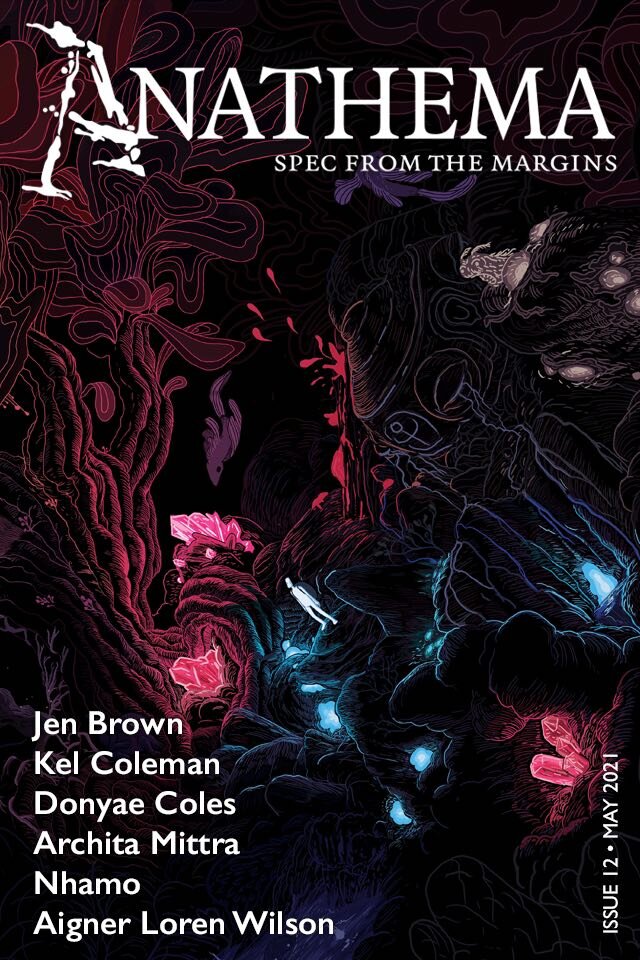Seven months ago, I was accepted into the first cohort of Clarion West’s Novel Writing Workshop. (Or NWW, as we’ve lovingly acronymn-ized it.) Seven life-changing months filled with lectures on craft, career, and community. Countless wisdoms from our instructor, Samit Basu; guest lecturers (authors, editors, and agents); Clarion West Staff; and even my classmates, who I’ve learned tremendously from. Seven months of novel-intensive writing, dreaming, plotting, and scheming, inching ever-closer toward that elusive last line: “THE END”
In many ways, the NWW is a beginning. It’s re-energized my writing and clarified the kind of authorial career I’m striving toward. With the 2026 application cycle opening soon, I’m thinking of the next folks who’ll walk this path. In concert with a recorded discussion from my 2025 classmates, I’m sharing my reflections on the workshop below.
Applying
NWW offers three submission options:
Your novel pitch and three chapters, OR
Three well-drafted chapters and a sense of where your book is going, OR
Opening chapter, plus an outline and synopsis, and writing sample.
Per the highlight, I chose that last option. I didn’t have 3 chapters written, and rather than rush-write two more, I polished existing materials: a (shortened) narrative outline I’d already written (thanks to Matt Bell’s Refuse to Be Done); an (updated) synopsis I already had; and an unpublished short story (to show I knew how to write beginnings, middles, and ends). Pick the option that works best, and don’t self reject.
Beyond your writing sample, Clarion West asks important questions about you, as a writer. Knowing exactly what I wrote won’t help anyone. Those answers are unique to my lived experience; my triumphs and heartbreaks. But I’ll say this: I applied to the NWW with my fullest sense of self, as a writer. I couldn’t have written the same answers, or applied with the same assuredness (e.g. “I’ll be fine if I don’t get into this program” type-energy) before now.
My advice? Know yourself. And if you don’t: spend some time reflecting. For example: I took a break from writing in 2023. I’d just come out the other side of some harrowing personal stuff. I spent 2023 & 2024 journaling, asking myself questions like:
- Do I still want to commit to writing? If so, what does that “commitment” look, taste, sound, smell, and feel like? How do I want to show up, in a committed partnership, with my creative writing? (I was inspired by Charlie Jane Anders’ Never Say You Can’t Survive. In particular, she talks about trying out story ideas like going on dates. I expanded that, in my mind, to think of writing like a “partner,” overall. I wanted to figure out why, at the time, that “relationship” wasn’t working.)
- How can I make the act of writing & revision pleasurable? What does “moving in the spirit of pleasure” mean to me, with respect to my writing? (“Moving in the spirit of pleasure” is a phrase inspired by Adrienne Maree Brown’s Pleasure Activism. With so much sad in my life at that time, I yearned for pleasure, and made a point of seeking ways to align with it.)
- Do I care about “success” when it comes to writing? If so, what do I want it to look like?
- How would it feel to enjoy my stories from draft zero to finished piece? (At the time, I hated everything I wrote at its most crucial stage: the beginning.)
When Clarion West announced the NWW in late 2024, it felt like cosmic alignment. I’d already chewed on these thoughts, and that journaling better prepared me to answer their application questions.
As far as applying, that’s my best advice: know yourself. Speak honestly about where you are; and don’t think there’s some “right” thing you have to write, in order to get in.
The Workshop
Clarion West beautifully outlines NWW’s structure, at a glance, on their website. It boils down to weekly lectures, monthly 1:1 meetings with your instructor, and–of course–writing your book. But what you can’t glean is: what does attending the NWW feel like? My classmates touch on this in their recorded conversation, but here are my programmatic takeaways:
Confidence-Building
I entered the NWW with serious doubts about the viability of my novel. I’d been drafting it since 2019, and had already finished two prior versions. I was convinced that the idea, and/or my execution of it, weren’t good enough. But once I started the novel workshop, several things became clear: everyone feels this way, at some point. Novels are unwieldy; they change shape, structure, and form while writing them. Sometimes, this leads to doubt–in yourself, as a writer.
But the beauty of a 9-month program, with significant guidance and support from established professionals, is: they’ve been there. They see your spiral, acknowledge it, and remind you why you can & will finish that book. This probably sounds like an oversimplification (a la ~Just Believe In Yourself!~), but I can’t understate the impact my instructor & classmates had on building up my confidence as a writer & novelist.
Community
Shortly after our program began, the instructors framed Clarion West as a container–the NWW’s most critical gift is providing space for cohorts to write in solidarity & community. That’s where the real magic happens. I’m writing alongside some of the most brilliant, thoughtful, and engaging people. They’ve taught me critical lessons about craft, care, and community.
Business
While I knew my novel’s world & characters pretty well coming in, I often felt tongue-tied when describing this book to anyone. (Cue dread-sweats anytime I was asked: “So, what’s your novel about?”) But through intense workshops & collaborative self-led sessions (later in the summer) with classmates, I’ve crystallized my understandings of things like pitching, query letters, synopses, outlining, and so much more. These are part of a critical package that leans toward the “business” side of writing, and while there are tons of blog posts & online resources about this, they were much more approachable in the NWW because it was tailored to my actual novel.
Final Thoughts
There’s an experiential element to participating in the NWW that I can’t capture. Not yet. Maybe not ever. But here’s my best attempt: sometimes, I sit awake late at night, churning over everything I’ve learned, everything that’s yet to come, and I can’t sleep with how excited I am. I sit; and I ponder; and I ping classmates about how this first draft of my pitch sounds; and I read draft pages from my classmates & get emotional over how good their books are; and I write, write, and write some more; and I meet one-on-one with my instructor & feel seen + heard in ways I’ve rarely been allowed to; and I talk about how scared I am about writing books, and my classmates back me up // remind me who I am, who we are–and the world feels a little more right. Or, I feel more right within it.
I hope you apply. And if you attend, I hope it’s just as transformative.






